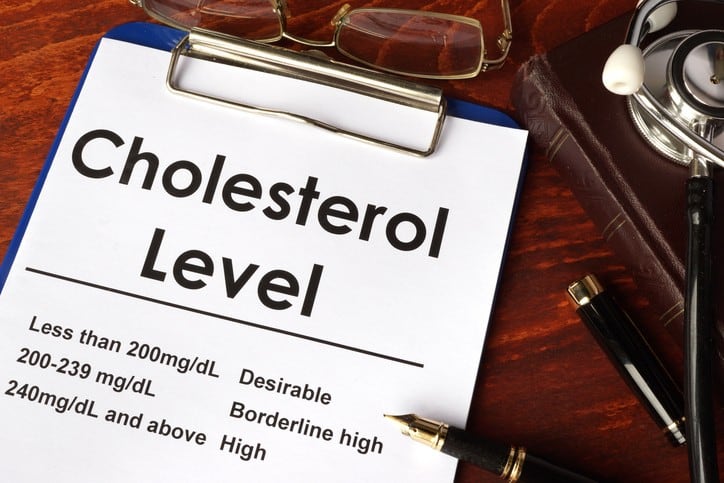Studies on egg consumption and stroke risk have produced inconsistent results so far, hence in this study, researchers in China included dose-response and geographic regions, with the findings published in the Frontiers in Nutrition journal.
Data collection
In this meta-analysis, 4,391 studies were taken from databases (Pubmed, Embase, Cochrane) which was narrowed to 16 studies involving 24 prospective cohort studies (1,387,653 participants).
The studies were conducted across the world, from USA, China, Japan, Iran, Finland, UK and Sweden.
Most of the studies used a food frequency questionnaire (FFQ) whether interviewer-administered or self-administered to assess egg consumption. 50g of egg intake was defined as one serving size or one egg.
Relative risk (RR) of stroke for the highest versus the lowest levels of egg intake was calculated.
Data findings
The study revealed that there was no significant association between a higher intake of egg versue a lower intake of egg with stroke risk (RR=0.92).
However, when the data was analysed by geographic region, the association was more pronounced in Asia (R=0.83) but not in North America (RR=0.95) or Europe (RR=1.02).
Higher egg consumption was attributed to a reduced probability of stroke in Asia compared to the Western regions.
In USA, frequent egg consumption was also associated with unhealthy behaviours such as higher consumption of red meat or processed meat, less intake of skim milk, insufficiency of vegetables or fruits, and lower physical activity.
Thus, the finding of regional differences suggested that other dietary patterns may attenuate the association between egg consumption and stroke risk, with the exception of possible genetic and environmental factors.
In terms of dose-response, egg intake between 50 to 200g/week (approximately one to four eggs per week) was associated with a decreased risk of stroke.
But an increased risk of stroke was associated with increasing egg intake of over 300g/week (six eggs per week).
Researchers proposed several possible protective biological mechanisms of egg consumption against stroke.
“Firstly, increased high-density lipoprotein cholesterol derived from egg phospholipids plays an anti-atherosclerosis role by promoting cholesterol metabolism,
“Second, the ovotransferrin peptide in egg white has a similar antihypertensive effect by preventing vascular smooth muscle remodeling,
“Third, eggs are also rich in lutein and zeaxanthin, which have antioxidant and anti-inflammatory effects,
“Finally, some components in the egg such as vitamins and zinc may have protective effects against stroke.”
Controversial
However, egg intake remains a controversial topic as eggs have a multifaceted effect.
The primary concern related to egg consumption is the adverse effect of high levels of dietary cholesterol in eggs (an egg contains approximately 175mg cholesterol).
Recent findings reported that moderate egg consumption (one egg daily) was able to reduce the ratios of total cholesterol/high-density lipoprotein cholesterol and low-density lipoprotein cholesterol/high-density lipoprotein cholesterol, but excess egg consumption (more than one egg daily) leads to higher ratios of total cholesterol/high-density cholesterol and low-density cholesterol/high-density cholesterol.
The current findings of increased stroke risk in those who consumed more than six eggs per week, suggest that egg intake should be restricted, but an accurate threshold range should be further explored.
Researchers further acknowledged that their study had several limitations.
“Due to the nature of observational studies, residual confounding factors and measurement errors generated from the original research could mask the true association. For example, data on egg consumption habits were collected using a food questionnaire at baseline, and most of the included studies did not consider the changes in egg consumption during the follow-up years.”
In addition, “because the included data were from East Asia, Northern America, and Europe, future research in other geographic regions is needed to confirm this finding.”
“Our study may have public health implications. The new 2015 American and 2016 Chinese recommended eggs as part of a healthy diet.”
China’s public health guidelines recommend an intake of 40 to 50g of egg daily for healthy adults, although no data was specified in USA’s guidelines.
They concluded that their findings suggest eggs be part of a healthy diet and may possibly reduce the risk of stroke, but the amount of egg intake should be limited.
Source: Clinical Nutrition, Frontiers in Nutrition
https://doi.org/10.3389/fnut.2020.00153
“Egg Consumption and Stroke Risk: A Systematic Review and Dose-Response Meta-Analysis of Prospective Studies”
Authors: Hui Tang, et al.




